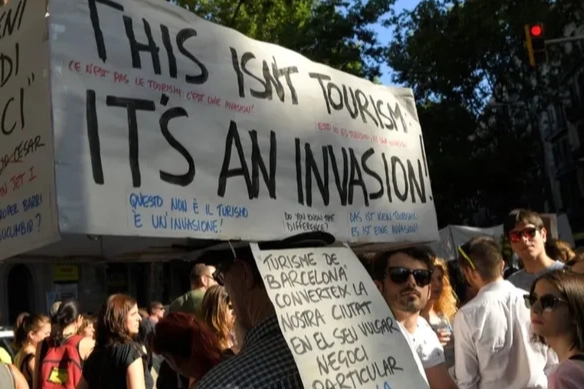In Spain, the excessive tourism in Barcelona has caused discomfort. Thousands of people, including more than 150 civil society organizations, protested against over-tourism at the city's iconic hotels and restaurants.

In recent months, protests against tourist overcrowding in Spain's Canary Islands and Mallorca have spread to Barcelona.
According to local authorities, around 3,000 people took to the streets on Saturday evening to protest against over-tourism in the city.
Throughout the weekend, protesters, including representatives from more than 150 civil society organizations (CSOs), held demonstrations across the city under the slogans "Tourists, go home."
Protesters are calling for action to prevent excessive tourism this summer season, which is expected to break tourist records both in Barcelona and the Catalonia region.
According to euronews, Marti Cuso, a spokesperson for the Gothic Quarter Neighbors Association and an activist against over-tourism, said, "We want more equitable methods for the city's economic model. To achieve this, we believe we need to reduce tourism."
With an average of 32 million visitors annually, Barcelona, Spain's most visited city, has been struggling with over-tourism for some time. While authorities continue to seek measures to combat excessive tourism, the city council recently voted to raise the "tourist tax" by 4 euros per person starting in October.
One Barcelona resident participating in the protest stated, "I am concerned about the opportunism in housing caused by tourism. Spaniards also have the right to proper housing."
No More Tourist Apartments
The Barcelona City Council recently announced a plan to eliminate licenses for approximately 10,000 tourist apartments over the next five years.
The plan aims to prioritize residential use over tourist use on properties, targeting the growing national housing crisis, particularly problematic in tourist cities like Barcelona.
The plan is also seen as a global effort to combat the effects of excessive "mass tourism" on local life